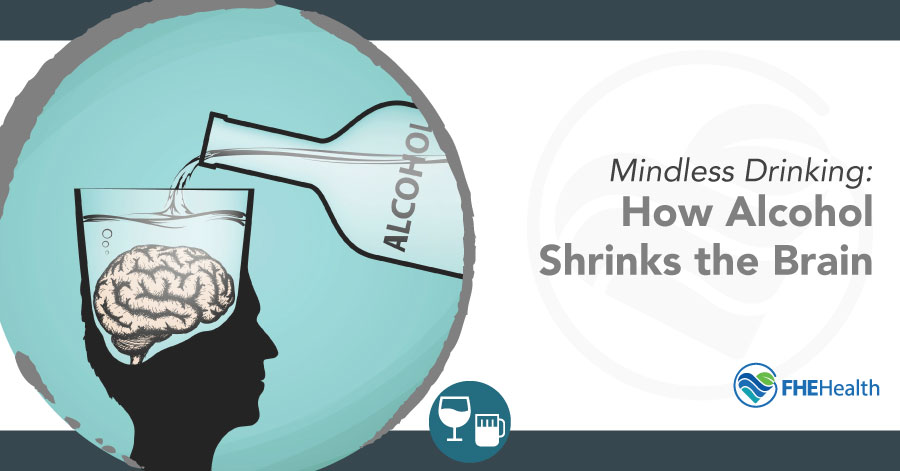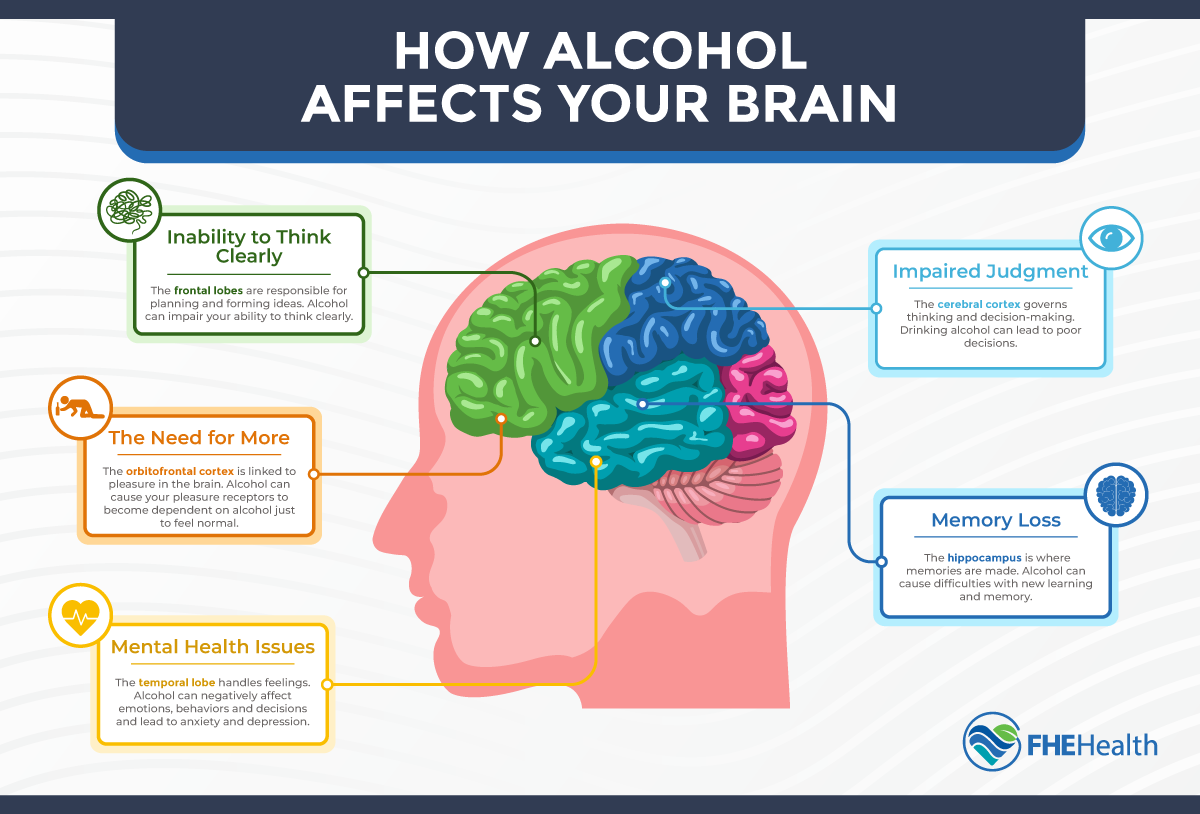
As early as 1940, neurologists understood that alcoholism caused brain shrinkage and irreversible damage to certain parts of the brain. However, moderate drinking was believed to provide health benefits. During the 1950s, articles regularly published in academic magazines like the Journal of the American Medical Association (JAMA) cited the health of benefits of alcohol in moderation, such as treatment of angina pectoris and peripheral vascular disease. Physicians assumed that since alcohol dilated blood vessels in tissues and skin, people with hypertension and associated conditions could benefit from drinking in moderation. (Today, too, proponents of moderate drinking say that red wine is good for the heart.)
Medical acceptance of alcohol led to the infamous use of the “alcohol drip” in the 1960s to prevent or delay premature labor. Unbelievably, this so-called treatment continued until the late 1970s when researchers found blood-alcohol levels induced by an alcohol drip caused vomiting and headaches in mothers and increased the risk of harm to the fetus. Today, the consensus is that the acceptance of alcohol as “medicine” by obstetricians probably delayed awareness of fetal alcohol syndrome (FAS) and fetal alcohol spectrum disorders (FASD).

Drinking and Brain Size: Is There a Correlation?
The assumption that moderate alcohol drinking offers health benefits is no longer pervasive in the medical community. While society may still view having a few beers or a glass of wine every day as harmless, the results of advanced neuroimaging scans are telling a different story.
Multiple studies have concluded that “no amount of drinking” is healthy, as well as the World Heart Federation. Alternately, the American Heart Association (AMA) says that it is possible for some people to drink alcohol in moderation without risking harm to their health.
If someone drinks one to three drinks per week, whether that drink is beer, wine, or hard liquor, it’s likely (but not certain) that significant brain shrinkage won’t occur. However, a 2022 study published in Nature reported the results of brain imaging data for nearly 37,000 healthy middle-aged and older adults and found the following:
- Individuals who drank a six-ounce glass of wine or 20 fluid ounces of beer every day over the previous month had brains “that appeared two years older than the brains of people who drank only half a beer per day.”
- Individuals who said they drank two glasses of wine or two pints of beer each day showed reductions in their brain’s gray and white matter, which added 3.5 years to the actual age of their brains.
Another study investigating the effects of low alcohol consumption on the brain found that even individuals in their 20s, 30s, and 40s can suffer from varying levels of brain atrophy. Authors of the study further stated they found nothing to support hypotheses that low to moderate alcohol consumption provides protection against the “risk of stroke or cerebral abnormalities in middle-aged adults.”
Why does alcohol shrink the brain? How much atrophy can the human brain sustain before mental and behavioral problems emerge? During the 70s and 80s, doctors believed heavy drinking destroyed cortical neurons, which led to behavioral changes seen in alcoholics such as making poor decisions, blackouts, and cognitive deficits.
Neurologists now know that brain shrinkage does not impact the entire brain. Rather, alcohol atrophy targets the brain’s white matter. Located in the spinal cord, the interior of the cortex, the brainstem, and optic nerves, white matter contains nerve cells and myelinated axons that are responsible for communicating between areas of gray matter. Shrinkage of white matter is what’s associated with physical and cognitive changes in heavy drinkers.
Comprising the exterior of the brain, the cerebellum, and cerebrum, gray matter contains nerve cells that do not have myelinated axons. Myelination is a fatty substance covering axons that is necessary for one brain cell to communicate with another. Gray matter neurons receive signals from white matter neurons that regulate movements, emotions, and memory ability.
The International Classification of Disease, Tenth Edition (ICD–10) refers to numerous conditions and diseases that are attributable to moderate and heavy drinking. Many of these are associated with brain atrophy, such as:
- Psychotic disorder
- Residual/late-onset psychotic disorder
- Amnesic syndrome
- Other behavioral and mental disorders
- Nervous system degeneration attributed to alcohol
- Alcoholic polyneuropathy
Brain shrinkage can also reduce blood flow within the brain, interfere with glucose metabolism, weaken cell signaling, and severely impair cognitive functioning.
Drinking and Brain Size in Older Adults
Recent studies are finding that age seems to be a major promoting factor in brain shrinkage due to alcohol drinking. Although the brain naturally shrinks with age, alcohol consumption appears to accelerate brain atrophy in middle-aged and older adults. In addition, there is growing evidence that the severity of cognitive problems experienced by alcohol drinkers of any age may depend on how much they engage in intellectually stimulating activities.
Is mild to moderate alcohol-caused brain atrophy reversible in older adults? Several studies indicate that functional and structural brain damage could be partially reversible following lengthy abstinence. However, the ability of the brain to recover from minor shrinkage depends on several factors, such as the age, health, severity of alcohol dependency, and even genetics of the individual.
Younger binge drinkers and daily drinkers are not immune to brain shrinkage but may be less likely to suffer atrophy to the extent that older drinkers do. Unfortunately, the big problem with binge drinking is that it can often lead to alcohol abuse disorder and, eventually, long-term alcoholism.
What About Studies That Claim Alcohol May Protect Against Dementia or Alzheimer’s Disease?
Researchers conducting a 2008 meta-analysis on the effects of alcohol on dementia and age-related cognitive decline concluded that small amounts of alcohol “probably protect against non-vascular dementia and Alzheimer’s disease.” The type of alcohol most beneficial to lowering a person’s risk for dementia, according to the analysis, was white wine. The authors further stated that association differs from causation and that moderate drinkers could live “healthier” lives than heavy drinkers or abstainers.
Other neurologists are quick to refute this conclusion, since brain imaging scans reportedly don’t show the assumed neuroprotective properties of alcohol. Instead, scans reveal that moderate drinkers have various degrees of brain atrophy, including reduced gray matter and increased size of brain ventricles. So, while subjective evidence appears to support the theory that alcohol, or white wine, in particular, may lower the risk of dementia, x-rays of the brain’s internal architecture say otherwise.
Drinking any amount of alcohol regularly can damage your brain as well as other organs. If you have health concerns about your drinking and would like to reduce your consumption, FHE Health may be able to help. Our team of compassionate counselors is available 24/7 to answer your questions at 1-855-953-5487.






